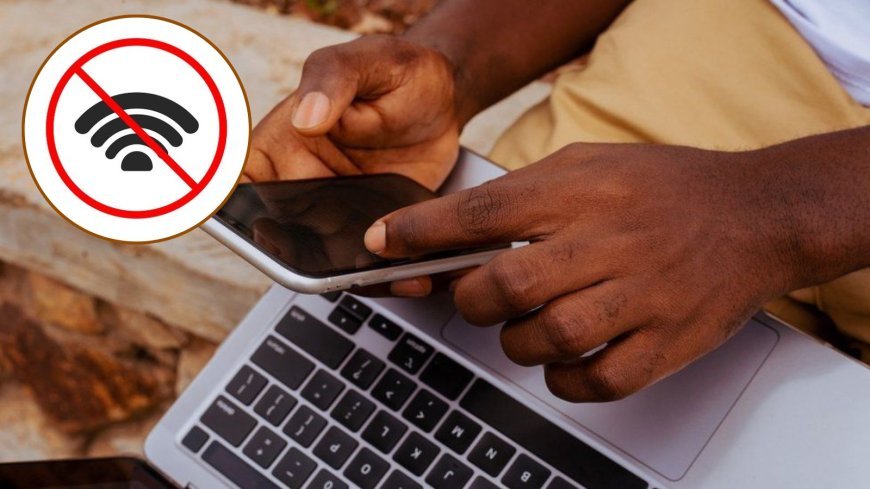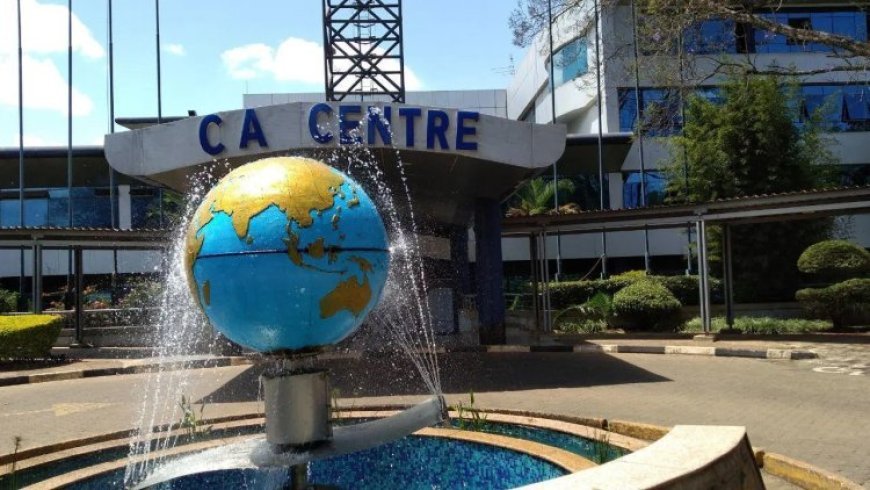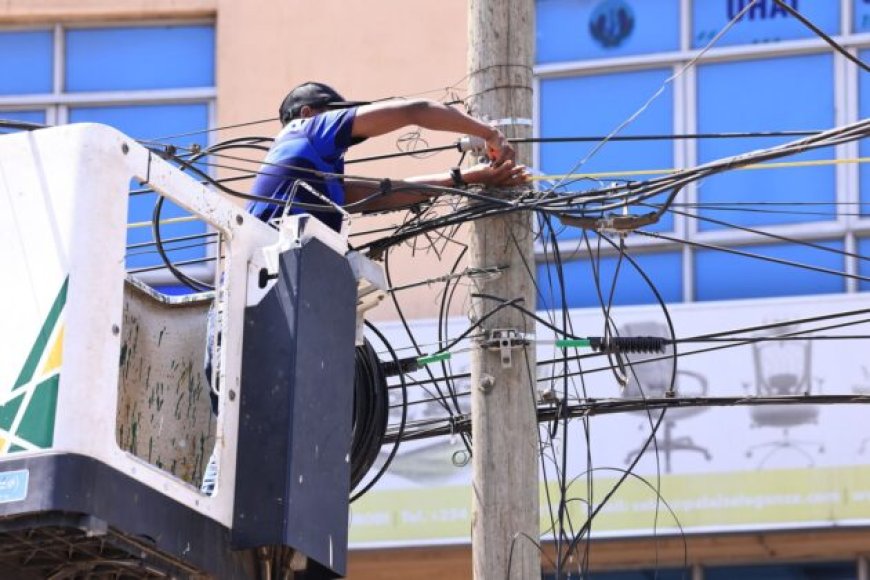Govt Blocked From Shutting Down Internet After 7 Groups Complain
The directive also prevents the parties from carrying out any form of internet disruption, including throttling or interfering with digital communications.

Any plans by the government to shut down the internet in Kenya in any form or manner have been nullified. This is after High Court Judge Bahati Mwamuye issued an order barring the government, the Communications Authority of Kenya (CA), and other involved parties from shutting down internet services.
In the ruling delivered on Wednesday, May 14, the judge prohibited any internet shutdowns until a pending case on the issue is fully determined.
The directive also prevents the parties from carrying out any form of internet disruption, including throttling or interfering with digital communications.

Communication Authority of Kenya (CA) headquarters in Nairobi. /FILE
"Pending the full hearing and determination of the petition filed on May 13, the court hereby issues a conservatory order restraining the respondents, jointly and severally, from unlawfully causing, directing, enforcing, or implementing any wholesale shutdown, blockage, or denial of access to the internet," the ruling declared in part.
The ruling was issued after seven organisations on Wednesday, May 14, filed a landmark public interest case challenging the unlawful disruption of internet access in Kenya.
The organizations include the International Commission of Jurists, Kenya Section (ICJ Kenya), The Bloggers Association of Kenya (BAKE), Paradigm Initiative (PIN), Kenya Union of Journalists (KUJ), Katiba Institute, The Law Society of Kenya (LSK) and The Collaboration on International ICT Policy for East and Southern Africa (CIPESA).
Reacting to the order, the groups hailed it, saying it safeguards Kenyans from arbitrary shutdowns and restrictions until the case is heard and determined. The seven organisations sued CA, the Attorney General, the Cabinet Secretary of Information, Communications and the Digital Economy, and two major telecommunication providers.
"This legal action responds to credible evidence of deliberate interference, including internet throttling and the blocking of the Social Media platform, Telegram, during the 2023 #RejectFinanceBill protests and the 2024 Kenya Certificate of Secondary Education (KCSE) Examinations. The evidence of the Internet disruptions, for this case, was provided by Cloudflare, IODA and The Open Observatory of Network Interference (OONI)," the groups said in a statement.
The organisations argued that restriction of access to the Internet in Kenya on three occasions in 2023 and 2024, constituted a blatant violation of Kenyans’ constitutional rights to freedom of expression (Article 33), media freedom (Article 34), access to information (Article 35), and the full realization of economic and social rights in an increasingly digital society.
“As organisations committed to defending civic freedoms, we condemn the escalating use of digital repression to silence dissent, manipulate information flows, and erode democratic participation. Kenya’s obligations under the African Charter on Human and Peoples’ Rights and the International Covenant on Civil and Political Rights further reinforce the imperative to protect digital rights,” said Eric Mukoya, Executive Director, The Kenyan Section of the International Commission of Jurists (ICJ Kenya).
The groups further argued that the internet is no longer a luxury but a critical enabler of political discourse, economic transactions, and even emergency response systems, thus any restrictions must satisfy stringent legal tests under Article 24 of the Constitution which are legality, necessity and proportionality – standards systematically ignored in Kenya’s recurrent, arbitrary disruptions.
Through this case, the seven organisations had sought a judicial declaration that internet shutdowns without due process are unconstitutional abuses of state power, alongside court-ordered mechanisms to ensure judicial oversight, transparency and accountability in digital governance.
“The outcome of this case will have far-reaching implications for millions of Kenyans who rely on unimpeded connectivity for livelihoods, education, and civic engagement. We call upon civil society, media partners, and the international community to amplify this crucial fight for digital rights as a cornerstone of Kenya’s democratic future,” said Kennedy Kachwanya, Chairperson, Bloggers Association of Kenya (BAKE).
Kenyans have previously reported multiple instances of internet disruptions. During the anti-finance bill protests in June, internet speeds were throttled by nearly 40 per cent across major service providers. Access to certain social media platforms was restricted during the Kenya Certificate of Secondary Education (KCSE) exams in November 2024, reportedly to prevent exam leaks, though no detailed official explanation was offered.
As part of the recent ruling, the judge ordered the government not to tamper with or destroy any evidence linked to past internet disruptions.
The court further directed the petitioners to serve all related documents to the government and other respondents by May 15. The government must file its response by June 10, with a compliance review scheduled for June 23.







